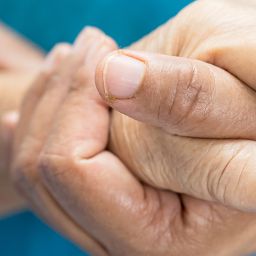Transitioning from rehabilitation back to home is a crucial phase in a patient’s recovery journey, and at the forefront of this critical juncture are nurse case managers, and key figures in the realm of addiction treatment. These dedicated healthcare professionals, skilled in nurse case management, play a pivotal role in ensuring a seamless transition for individuals who have undergone addiction treatment and rehabilitation. This is particularly evident at the Baltimore Rehab Center, where nurse case managers become the architects of personalized recovery plans, incorporating the unique needs of each patient.
The Role of Nurse Case Managers
Nurse case managers are undeniably the linchpin in the continuum of care, demonstrating their commitment not only to addiction treatment in Baltimore but also to the broader landscape of recovery help. Their tireless efforts extend from coordinating and managing various aspects of a patient’s recovery, including addiction treatment, during rehabilitation to guiding their journey back home. The Baltimore Rehab Centers stand as a testament to the effectiveness of nurse case management in addiction treatment. These professionals ensure that each step of the recovery process, including addiction treatment, is meticulously planned and executed, fostering a supportive environment for individuals seeking addiction treatment in Baltimore.
Below, we will illuminate the invaluable contributions of nurse case managers, shedding light on the key points and benefits they bring to the forefront of the recovery journey.
Assessment and Planning
The first step in the process involves a comprehensive assessment of the patient’s needs and a tailored plan for their recovery, highlighting the crucial role of nurse case management in Baltimore. Nurse case managers actively collaborate with the healthcare team to create an individualized roadmap. This ensures that the rehabilitation journey is customized to address the unique needs of each patient, emphasizing the localized expertise brought by nurse case management in Baltimore.
Constant Communication
Active communication is a cornerstone of successful rehabilitation. Case managers facilitate ongoing discussions between the patient, their family, and the rehabilitation team. This ensures everyone is on the same page, reducing potential misunderstandings and fostering a collaborative environment that supports the patient’s recovery.
Education and Guidance
Nurse case managers are educators at heart. They equip patients and their families with the knowledge necessary for a successful transition. This includes understanding medication routines, recognizing potential challenges, and establishing a supportive home environment. By providing comprehensive education, nurse case managers empower patients to take an active role in their recovery.
Coordinating Follow-Up Care
The journey doesn’t end at homecoming. Case managers coordinate follow-up care, ensuring that patients continue to receive the necessary support. This may involve scheduled check-ins, therapy sessions, or connecting patients with local support groups. By actively coordinating post-rehabilitation care, nurse case managers contribute to the long-term success of the recovery process.
Specialized Support
In Baltimore, rehab centers are at the forefront of addiction treatment. Case managers in these centers specialize in understanding the unique challenges of individuals seeking recovery in the Baltimore community. This specialized support ensures that patients receive care that is tailored to the specific needs of their community, enhancing the effectiveness of the rehabilitation process.
Community Integration
Beyond medical care, case managers actively work towards integrating patients back into their communities. This involves collaborating with local resources and support groups, fostering a sense of belonging crucial for long-term recovery. By promoting community integration, nurse case managers contribute to a holistic approach to rehabilitation that extends beyond the confines of the treatment center.
Emotional Support
Nurse case managers go beyond addressing physical health; they provide crucial emotional support. The recovery journey is often emotionally taxing, and having a compassionate professional by one’s side can make a significant difference. Emotional support is integrated into the overall care plan, recognizing the interconnected nature of physical and emotional well-being.
Encouraging Independence
While support is essential, nurses also focus on fostering independence. Empowering patients to take charge of their recovery journey builds confidence and resilience. This is achieved through a balance of guidance and encouragement for patients to actively participate in decision-making related to their health.
Seeking Professional Help?
As we’ve explored, nurse case managers are the unsung heroes of rehabilitation transitions. If you or a loved one need support, reach out to 70×7 Wellness Mission today. Our team of dedicated professionals, including experienced nurse case managers, is here to guide you toward a successful recovery.
Conclusion
Navigating the transition from rehab to home is a collective effort, and case managers in Baltimore rehab centers are the glue that holds it all together. Their dedication, coupled with the specialized care provided by centers like the Baltimore Rehab Center, ensures that individuals not only recover but thrive in their newfound sobriety.
In conclusion, the journey from rehab to home is a critical phase, and nurse case managers act as essential guides, ensuring a personalized and successful transition. By addressing the unique needs of each patient, fostering open communication, providing ongoing support, and recognizing the importance of emotional well-being and independence, these healthcare professionals contribute significantly to the holistic recovery of individuals.














